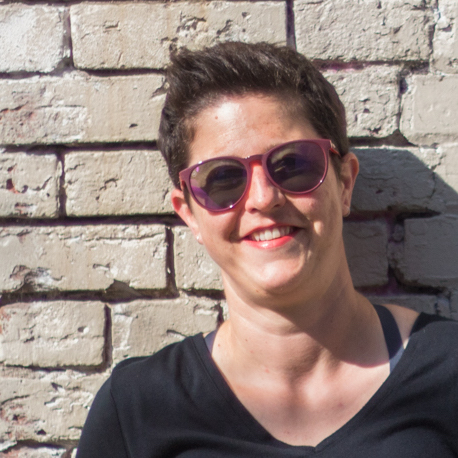In recent years, there has been a surge in the number of people who are neurodivergent, from late-diagnosed individuals to those who have self-diagnosed. It seems that everyone is talking about neurodivergence. But what exactly is neurodivergence, and why is it gaining popularity? Let’s talk about the concept of neurodivergence, examine the increase in late-diagnosed and self-diagnosed neurodivergent individuals, and discuss ways to create a supportive environment for neurodiversity. By the end of this post, you’ll better understand neurodivergence and its current rise in popularity.
What is Neurodivergence?
Neurodivergent is an umbrella term that refers to any neurological differences from the “neurotypical” or majority such as autism, ADHD, dyslexia, and dyscalculia. The term also includes mental illness. In recent years, society has become more accepting of these differences, and people are becoming more comfortable embracing their neurodivergence as a valuable part of their identity. Individuals with neurological differences have unique strengths and talents that should be celebrated. While being neurodivergent can pose specific challenges, such as difficulty finding appropriate employment or feeling excluded from social situations, support services are available to help mitigate these difficulties. It’s important to remember that neurodiverse individuals can contribute positively to society and bring valuable problem-solving skills and creativity. To create an inclusive environment, we need better education on what it means to be neurologically different to become more accepting and supportive of each other’s unique perspectives on life.
The Surge in Late-Diagnosed and Self-Diagnosed Neurodivergent People
In recent years, there has been a rise in both self-diagnosed and late-diagnosed neurodivergent individuals. This increase is primarily due to heightened awareness and acceptance of neurodiversity, as well as improved technology for diagnosis.
Neurodivergent conditions have been historically misunderstood and misdiagnosed. However, with better awareness and technology, identifying and diagnosing neurodivergent conditions is becoming increasingly common. In addition, the availability of online resources has made it easier for individuals to recognize their own needs and seek help. This has led to many previously undiagnosed individuals seeking diagnosis and treatment, increasing reported cases of neurodiversity.
There are numerous benefits to being open about one’s neurodivergent identity, including feeling understood, accepted, empowered, and connected and exploring new paths previously unavailable. As society becomes more aware of the differences in how every individual experiences mental health, the stigma surrounding neurodiversity is decreasing. This has resulted in more workplaces and educational institutions developing policies and accommodations for neurodiverse individuals to ensure equal access to education and employment opportunities.
Furthermore, increased research into these conditions reveals new ways to support and treat neurodivergent individuals, offering newfound hope for those navigating their health journey. Ultimately, this surge in late- or self-diagnosed neurodivergence highlights the importance of our changing understanding and acceptance of mental health.
Creating a Supportive Space for Neurodiversity
In recent years, there has been an increase in the number of people identifying as neurodivergent. Neurodiversity encompasses a range of conditions, including autism, ADHD, dyslexia, and other neurological differences. These conditions, whether self-diagnosed or late-diagnosed, can significantly affect how individuals think and interact with the world around them.
Creating a supportive environment for neurodiversity is vital for those affected by these conditions and those who are not. Recognizing the unique strengths and challenges associated with neurodiversity is necessary to cultivate an inclusive setting that values individual differences. It is also important to acknowledge that everyone’s brain is wired differently, fostering deeper connections between colleagues.
Moreover, neurodivergent individuals often offer creative solutions to problems that traditional thinking may overlook, highlighting the value of embracing their creativity and encouraging greater collaboration within teams.
We must strive to educate ourselves on the signs and symptoms of neurodivergent conditions, enabling us to better understand their needs and create a more supportive space for them at work or school. This understanding will help us adjust existing structures and processes and provide necessary resources and skills training opportunities. In addition, it will empower adults with neurological differences to succeed in their chosen fields or workplaces.
Finally, connecting with support networks, such as advocacy organizations within our communities, promotes awareness of neurodiversity, advancing greater inclusion despite our differences!
All in All
Neurodivergence is an umbrella term that refers to any neurological differences from the neurotypical or majority that are not considered mental disorders. In recent years, there has been an increase in both self-diagnosed and late-diagnosed neurodivergent individuals due to heightened awareness and acceptance of neurodiversity, as well as improved technology for diagnosis. Creating a supportive environment for neurodiversity is essential for those affected by these conditions and those who are not. It is important to educate ourselves on the signs and symptoms of neurodivergent conditions to create a more inclusive setting that values individual differences. By understanding our own biases towards those with neurological differences, we can work together towards creating an environment where everyone is accepted and celebrated, regardless of their neurological makeup. Let’s join hands in embracing diversity and building better communities for everyone!

Heyo! I’m Casey. I’ve got a Masters in Rehabilitation & Mental Health Counseling. As well as several flavors of neurodivergence. It’s my mission to help you integrate the lens of neurodivergence into your life in a way that allows you to grow and navigate change with confidence and intention.
